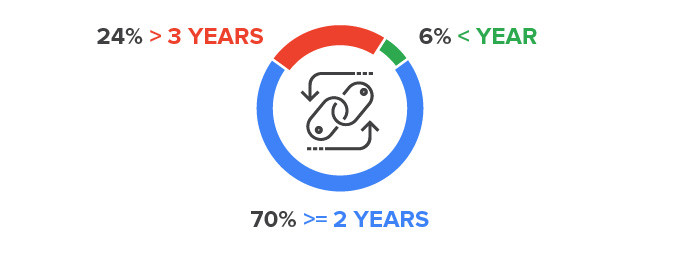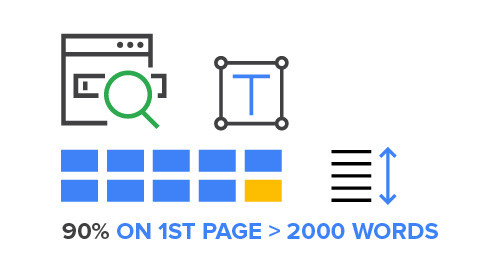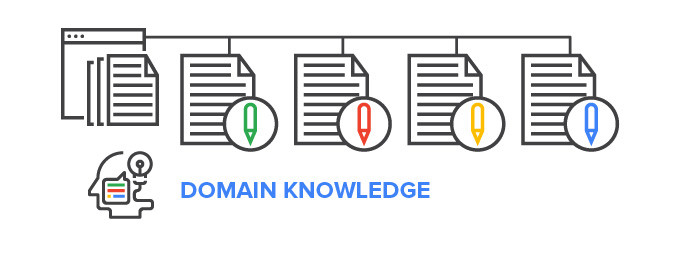Become number 1 on Google: The ultimate guide
If possible, everyone wants to become number one in Google. It results in a lot of organic visitors that you can convert to customers, and we can never have enough customers. In high confidence, we, therefore, create a site to find out after thousands of euros that the number of visitors is disappointing.
To become number one in Google we write some more content and post it to the annoyance of everyone on all the social media channels we manage, and when our social media friends don’t visit our site anymore, we give up. Google works for large companies, but not for you.
Many people turn to Instagram, Pinterest, or Facebook, but also there big brands and influencers seem to dominate the market. No more sites, no more money, and no more dreaming of converting all those free visitors into customers. What went wrong, and what could you have done?
Table of Contents
Becoming number one in the Google | Ranking takes time and a lot of work.
Becoming number one in Google is not very easy. Did you know that less than 6% of all articles Google shows on the first page of the search results are younger than one year?
70% of the articles are published two years ago, and the rest are older than three years. If you think about it, it’s strange but true. With every Google search, we are tempted to see or read something that is more than two years old. This is how the most modern and dominant search engine in the world works.

There is a logic behind it, but it doesn’t help us to become number 1 in the Google search results immediately. Google wants to monitor the quality of the results. Some of the rules that Google uses to become number 1 is that a page and article must be existing for some time.
Besides, the page must have specific domain authority, use the right HTML structure, have the right links to and from other sites and articles and, of course, be well constructed in terms of content with enough words. In the past, you could use 250 to 300 words, but 90% of the articles Google shows on the first page consist of more than 2000 words!
Become number one in Google | Who writes will be seen
In theory, you can make a site and put a large piece of an article that will be shown in first place in the Google search results within 2 to 3 years. In theory, today or tomorrow a meteorite can destroy all life on earth. If I had to gamble, I would choose the meteorite. That chance is bigger. Unless…

Unless your article is about a subject that nobody is looking for, it is impossible to get a site with 1 article high in the Google search results. If the title and meta title of your article has a name like “Kwalihosavla” – or any other non-existent word – the chances are that no one will ever look for it.
However, if someone does search for it, you’ll see that you have become number one in Google at once. But of course, that’s not what you want. You want a lot of visitors to your website, so you’ll have to use words in your title and meta description that people often look for.
The counterpart of this is that if you did everything right to become number one, but you do this, for example with an article about the World Cup, it will still be tough. World Cup is one of the most searched words on Google, and everyone wants to score with it. The competition to get to number 1 on this topic is too strong.
The trick is therefore to write articles that matter about a subject that you know a lot about. The more and the more you write, the higher the chance that your piece will be placed first in the Google search results. After all, who writes will be seen.
Chat GPT: Free online tool for quickly writing articles
For some time, there has been a tool called Chat GPT that uses AI to automatically generate SEO articles. Chat GPT is a large language model developed by OpenAI. It uses machine learning algorithms to generate natural language text that is often indistinguishable from human writing. It is a powerful tool for creating content that is optimized for search engines.
Becoming number one in Google shows that you have domain knowledge
Google wants to give its users the right information. If you want to know something in real life, you’re probably going to go to the person who knows the most about it. You want to talk to someone who has specific domain knowledge.
This is no different in Google. It’s not for nothing that your Domain Authority is one of the most important factors that Google looks at to become number one.

Suppose you live in Amsterdam. In that case, you can probably write an excellent article about Amsterdam. But that’s not enough to become number one in Google. What they want is for you to write a whole new article about every topic you mention in your article. If you can write another article about the topics you mentioned in that article, Google knows for sure that you have domain knowledge and therefore, authority.
Becoming number one in Google | Technique and (back)links
If you write about what you know, without any SEO tricks, and regularly post a new article, Google will eventually reward you with a higher ranking. But there are a lot of possibilities to rank higher in the search results faster. The most important five factors are:
- Clean and SEO-optimized HTML
- Internal and external links
- Meta information
- Sitemap
- Traffic and time on site
Becoming number one in Google | SEO-optimized HTML
Each website is constructed in HTML. This code indicates, among other things, how your page is displayed and where buttons are located, and what they should do. Google robots read this code from top to bottom. The better this so-called code is built, the easier it is for the robots to read and understand the code.

If you are proficient in HTML, you can indicate what information you want the robots from Google to read and not to read. By making only the most relevant information ‘readable’ for Google, the robots have more time to index your site correctly and to understand what your site is really about.
A biography of the author is of course, much less important than the article itself. That’s why this information is in the correct HTML below the text of the article, and it’s better to set it to “non-indexable”.
Becoming number one in Google | Internal and external links
If you have written your article about Amsterdam, you can refer to that article with an internal link to the sub-articles you have written. From the sub-articles, you can then refer to the main article about Amsterdam.
If you have ten sub-articles, they all get one link from the main article, and the main article gets a link from each sub-article. That makes a total of 10. This way, Google knows that your main article is the most important one. And articles that you indicate that they are important will generally get a high ranking most quickly.
Even more important are your external links to become number one in Google. These are called back links. If you get one or more referrals from a well-known news site to your article, Google sees this as a recommendation that you know something important about that subject.
The more links from websites to your article, the more appreciation you get. These must be links from reputable sites. If many unknown sites link to your article, Google will not consider this credible and you will not become number one.
Becoming number one in Google | Meta information
Google first looks at the meta information of an article and after that at the title. Meta information is also what you see in the search results. Every article should, therefore, be provided with meta information. It means a title and a short description.

Suppose the title of your article is “The nicest places in Amsterdam”, then the meta description should be almost the same. Besides, you want the name and meta description of each image to correspond to this.
For example, the first photo you use is called “Amsterdam Rijksmuseum”, and the meta tag you give to the picture is also “Amsterdam Rijksmuseum”. Anyone who then searches in Google for “Nicest places Amsterdam Museum” will see both your photo and the article in the search results.
Becoming number one in Google | Sitemap
Your sitemap is the first thing Google reads. It contains all the pages from your website.

Here too you can indicate which pages are relevant and which are not, just like with the HTML. You can do this by indicating not to have them indexed, and you can give a value to specific pages. By providing your main article more value than the sub-articles, it will be ranked quicker and higher to become number one.
Becoming number one in Google | Traffic and time on site
A page that is never visited will not easily become number one or even rank high. This is a bit of the chicken and egg story. You can only get a lot of visitors when you rank high, and you can only rank high when you have a lot of visitors. It also matters how long visitors stay on your website and how long they take to read your article.

If 1000 visitors all stay on your site for 5 seconds and take 3 seconds to read your article, then Google considers the content of your article to be irrelevant. To get visitors without a high ranking, you can share your articles on various social media channels, provide even more back-links or advertise.
Also, the formatting and readability of your article are essential to ‘keep’ visitors on your site for a while. It has been proven that images extend the time on site.
Becoming number one in Google | Ask an SEO specialist
SEO specialists are continually enriching their knowledge and keeping up to date with the changing rules of how to become number one in Google. There seem to be more than 220 factors that determine how high and how fast you can rank in the search results, and the degree of importance per element can vary from month to month. Always ask for the help of an SEO specialist when you are working with SEO.

I’m sure you’ll be able to get away with it all by yourself, and Google will reward your effort. But it would be a shame if you forget something or don’t do it right, so all your efforts to write that one killer article have been in vain.